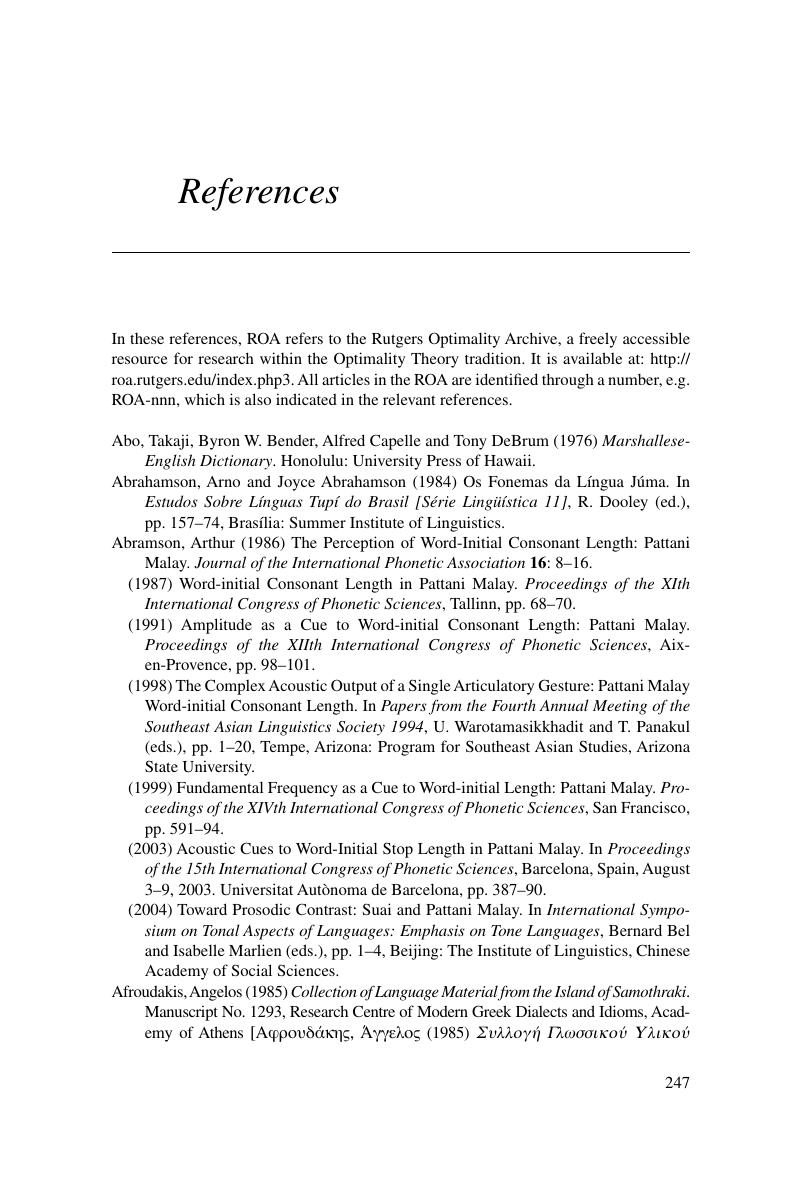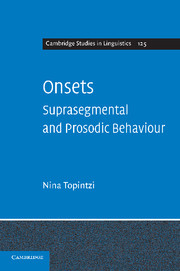Book contents
- Frontmatter
- Contents
- Preface
- Acknowledgements
- 1 Onsets and weight: the theory
- 2 Onsets and stress
- 3 Onsets and compensatory lengthening
- 4 Onsets and word minimality
- 5 Onsets and geminates
- 6 Other real and not so real onset-sensitive data: brief case-studies
- 7 Conclusion and discussion of alternatives
- References
- Subject index
- Language index
- References
References
Published online by Cambridge University Press: 06 July 2010
- Frontmatter
- Contents
- Preface
- Acknowledgements
- 1 Onsets and weight: the theory
- 2 Onsets and stress
- 3 Onsets and compensatory lengthening
- 4 Onsets and word minimality
- 5 Onsets and geminates
- 6 Other real and not so real onset-sensitive data: brief case-studies
- 7 Conclusion and discussion of alternatives
- References
- Subject index
- Language index
- References
Summary

- Type
- Chapter
- Information
- OnsetsSuprasegmental and Prosodic Behaviour, pp. 247 - 263Publisher: Cambridge University PressPrint publication year: 2010



